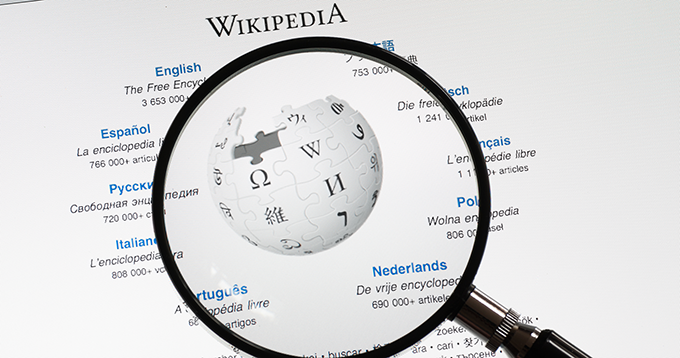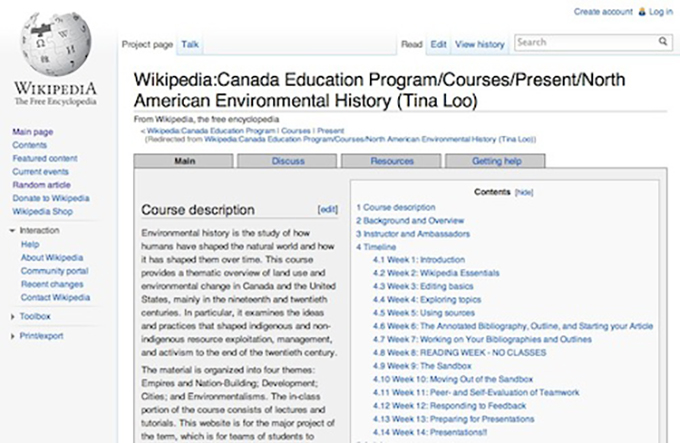
If we asked a group of university students to raise their hands if they have turned to Wikipedia to resolve a question throughout their academic life, it is likely that virtually all hands would go up. However, when it comes to submitting academic papers, university students usually avoid citing it as a source. There is a belief, based on comments from teachers or the rejection of works with references to Wikipedia, that this platform is not a serious, reliable or prestigious source. However, this perception is erroneous and limits the ability to make the most of this digital resource.
Digital technologies have been integrated into all aspects of daily life, including university life, ranging from administration and teaching to communication and interaction methods. Without forgetting, of course, the pedagogical techniques or teaching methods themselves.
Active teaching methodologies and technological tools are two ways to improve and update pedagogical techniques, as stated, for example, in the new university law in Spain . In this context, Wikipedia can be a valuable educational digital resource.
Active learning in open culture
Digital platforms, pillars of open culture, are key in promoting active learning. Wikipedia, a global reference , still struggles to strike a balance between its recognition and its practical application. With more than two decades of evolution, the encyclopedia has perfected its content creation and editing system, making it a reliable academic source for higher education, as long as it is used appropriately.
Interaction with the Wikimedia ecosystem not only improves basic skills such as critical reading, writing and teamwork, but also boosts media literacy and digital skills , in addition to promoting an open knowledge environment.
However, there are studies that question the reliability of Wikipedia , possibly because the notion of a digital encyclopedia based on collaboration and free access was not fully established in its beginnings. Let us remember that, twenty years ago, the digital environment was the subject of widespread mistrust.

Educational projects page on Wikipedia.
The value of shared authority
Many educators are still not aware of the importance of collaborative work and shared authority. This lack of knowledge often leads to underestimating Wikipedia as an academic source, particularly at advanced educational levels where its role in learning is marginal .
In addition to the lack of familiarity with the theoretical principles that support the operation and reliability of Wikipedia, experts identify other elements that influence teachers when adopting this tool: technological factors intervene in teachers’ attitude towards Wikipedia ( such as the ease of use and functionality of the platform) and academic and professional aspects, such as the perception of the quality of Wikipedia or its social reputation.
The teaching community has long recognized the advantages that Wikipedia offers for university teaching and open learning , but there remains a prejudice regarding its reliability that teachers transmit to students.
This lack of prestige among students can be modified through active stimuli such as editing and creating Wikipedia entries.
How to integrate Wikipedia into the classroom
Our teaching innovation group InnovaWiki has designed some training itineraries, implemented them and developed tools that can be easily used and shared by others. Its objective is for the entire university community involved in the teaching and learning processes to recognize their ability to actively participate in the collective creation of knowledge.
In this repository of materials to integrate Wikipedia into the classroom we can find, for example, an itinerary for creating entries that includes videos explaining how to create a user, how to create an article from scratch, how to add references and images , among many others in addition to general manuals such as the style manual.
Verify information and provide material
Another proposal consists of the verification of information. The objective is to promote among students the search for truthful and verifiable information, to generate content with academic support, as well as improve existing content. Let’s not forget that Wikipedia is in the top 10 of the most visited websites worldwide .
In addition to being able to contribute to free knowledge with entries on Wikipedia, there are other projects that have contributed audiovisual material through Wikimedia Commons . The result, the following audiovisual map of the Faculty of Information Sciences of the Complutense University of Madrid:
Our objective is to make available to the educational community a clear opportunity to improve open education, with new teaching materials and a centralized repository. These materials can be integrated into the academic curriculum thanks to the implementation of personalized itineraries in the study plans.
In this way we make it easier for students to acquire the skills necessary for today’s world of work with a structured and meaningful learning path.
Author Bio: Lizette Martínez Valerio is Professor of the Department of Journalism and Corporate Communication at the Universidad Rey Juan Carlos
